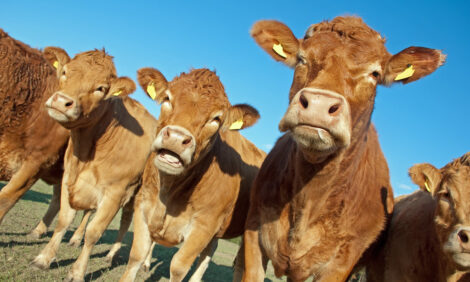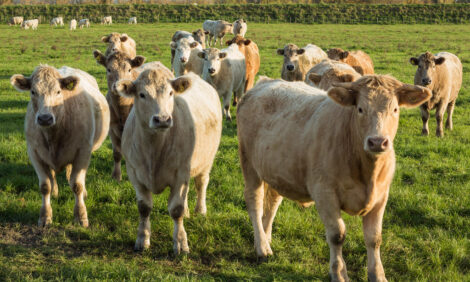



EU Greening Plans are Counter-Intuitive
UK - Increasingly tight world food supplies, including beef, mean that both UK and EU agricultural specialists should already be planning a rise in self-sufficiency and establishing structures that avoid the risk of unnecessary retail shortages.But, says the National Beef Association, debate in Brussels is still concentrating on greening plans that in some countries could reduce food production capacity by up to seven per cent even though there is clear evidence that global demand for grain already exceeds supply and more grazing land will be needed to encourage a tactical lift in livestock output.
“Strategists must think ahead and we worry greatly that the European Commission is still fighting hard to introduce a significant production curb, based on setting-aside more land for non-agricultural purposes, when market signals clearly point to the danger of fully guaranteed food supply soon becoming a thing of the past”, explained NBA national chairman, Hamish McBean.
“Disaster from such a mistake may not be immediate. Rain may fall in the right place in the right countries over the next two years and there is still, given the right weather, capacity in Brazil, Russia and India to significantly raise their agricultural output.”
“However nothing can be done to stop on-going world population expansion and the margins between adequate food supplies, even for western countries, and a visible shortage of basic food products are already uncomfortably tight.”
In these circumstances the NBA would like UK and EU agricultural strategy to anticipate these looming developments and take protective measures that aim to avoid the economic and political de-stabilisation that would inevitably follow the appearance of persistent gaps on supermarket shelves.
“We are not being alarmist but we are saying that EU and UK attitudes to food production are still being shaped by problems created by recent surplus and not by increased anticipation that sooner, rather than later, even rich western countries will need to work harder to ensure their populations can continue to anticipate there being a full range of food products for their plates,” said Mr McBean.
“Members of our Association are aware that cattle numbers are shrinking at the same time as the second poor world harvest in four years has driven feed grain prices through the roof.”
“And they are saying that these twin problems can only be countered if more land in the UK and the EU is put down to cereals and more grassland on the margins is made available for cattle and sheep.”
“This cannot be done if the European Commission continues to pursue its greening plans and even more, increasingly important, land is taken out of food production.”
“So the NBA is urging the UK government to do all it can to persuade the Commission to call off its greening plans and also reminding everyone, including consumers, that the most likely development between now and 2020, which is when the side-lining of more land for greening purposes is expected to end, is that the strain on world food supplies will be even tighter and countries like the UK will be having to work much harder than they do now to ensure the availability of all they food they need,” Mr McBean added.
TheCattleSite News Desk


